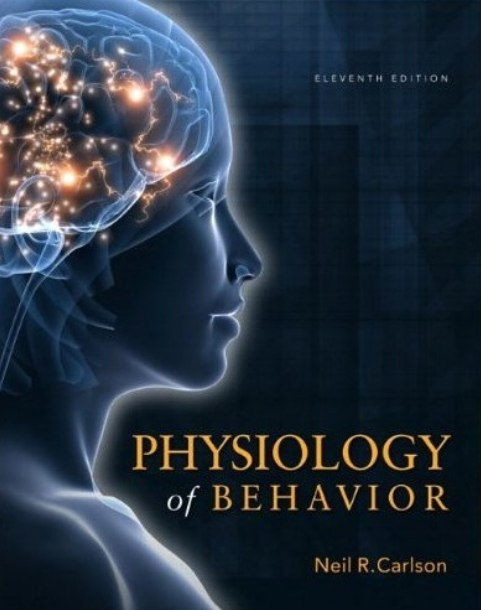

 |
"Students like my lab course..."
|
Course Description:
CONTENT: Neuroanatomical, electrophysiological, and biochemical substrates of psychological processes.
PREREQUISITES: 312-1 or equivalent; 205 recommended.
TEACHING METHOD: There are two (1 hour, 20 minute) lectures per week. There are reading assignments in a textbook as well as in selected papers from the primary literature in neurobiology. Lectures and readings are sometimes designed to
overlap (e.g., when the material is especially difficult or controversial), but often these two sources of information are independent.
EVALUATION METHOD: Exams will cover lecture and reading material in approximately equal amounts. A midterm and non-cumulative final exam will each determine 50% of the final grade. Absence from a major exam will result in a score of
zero for that exam unless a written medical explanation is presented.
312-2 Syllabus Neurobiology and Behavior II Syllabus
 |
Carlson, Neil R. (2012) Physiology of Behavior (11th ed.). U.K., Pearson Publishers |
|
|
|
John L. Andreassi (2007) Psychophysiology: Human Behavior and Physiological Response (5d ed.,Lawrence Erlbaum Associates Inc., Publishers). |
|
|
Extra reference: Handbook of Psychophysiology (2000). John T. Cacioppo (Editor), Louis G. Tassinary (Editor), Gary Berntson (Editor) |
|
Book Chapters and Articles:
1. EEG Biofeedback ("Neurofeedback") and affective disorders
3. Interacting Brain Stem Components of Opiate-Activated, Descending, Pain-Inhibitory Systems
4. Brain Mechanisms and intellegence
6. Strehl, Birbaumer et al. (2006) Self-regulation of slow cortical potentials: A New treatment for children with attention deficit/hyperactivity disorder. Pediatrics, 118, 1530-1540
10. Birbaumer (1999). A Spelling device for the paralyzed.
11. Lisa Feldman Barrett called"What Emotions Are (and Aren’t)." July 31, 2015.
Power Point Presentations:
1. ERP's in Deception, Malingering, and False Memories
2. Countermeasures to P-300-based Guilty Knowledge Tests of Deception (SPR, 2002)
4. Operant Control of Sensory ERPs: Mechanisms and applications
9. Anti-terror uses of the P300-based,wareness effects
|
|
|
||||||
|
|
|||||||
|
|
|||||||
|
|
|
|
|
|
|
|
|
Last Update Saturday